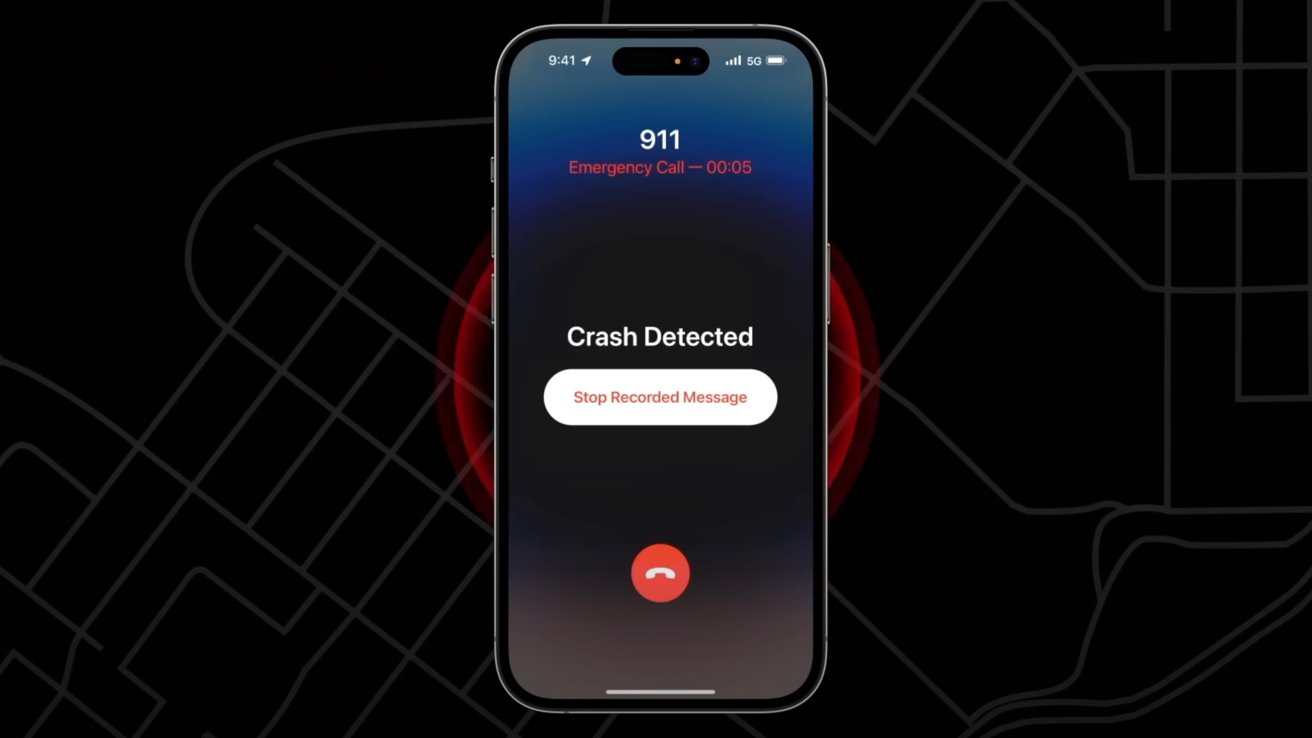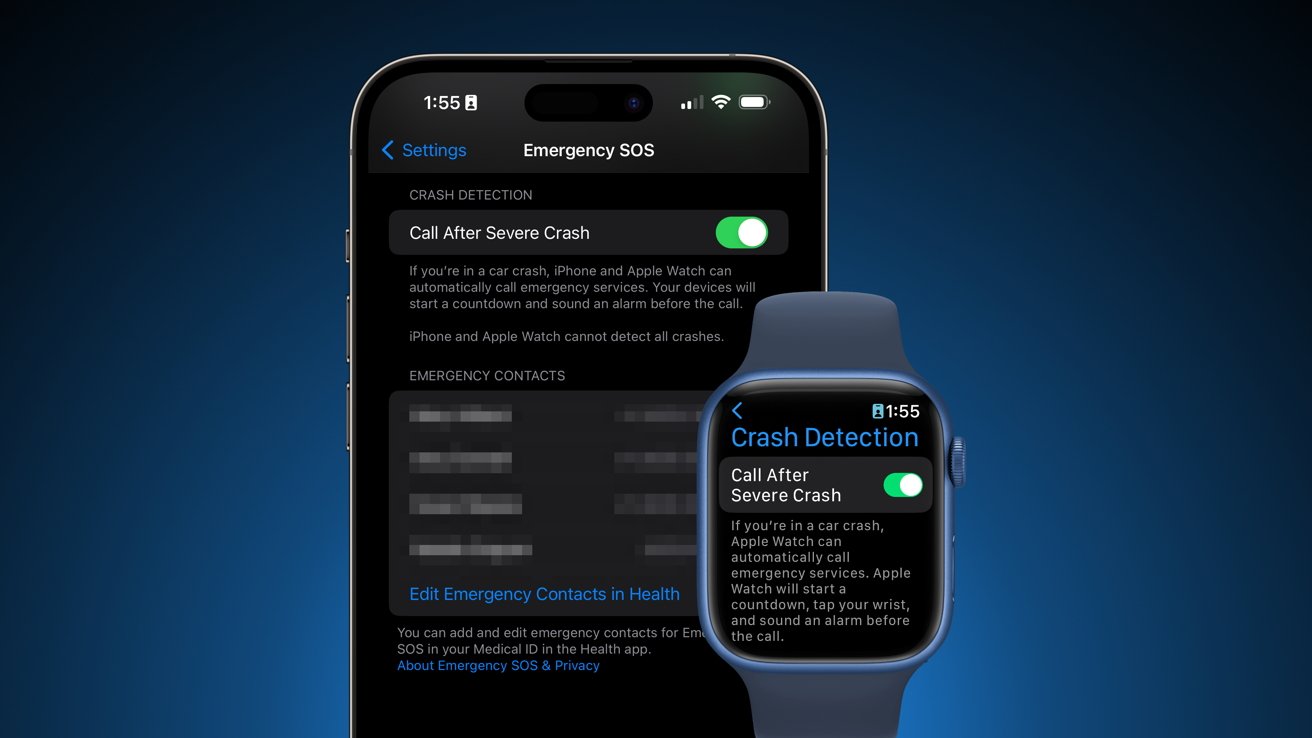Crash Detection on Apple Watch and iPhone 14 still causing problems for law enforcement and emergency responders.
Reports keep filing in from emergency service departments complaining of being overwhelmed by false reports from Apple's Crash Detection. Ski lodges, theme parks with roller coasters, and even gyms are running into repeated problems.
A story from The New York Times gathered several anecdotes about how Crash Detection has affected emergency services operations. The stories range from the usual false alarm from a skier to someone taking spin class — each perfectly fine despite the 911 call.
A Summit County call center in Colorado shared one such story, as Sergeant Watson walked through a busy day dealing with false alarms. The calls from Crash Detection alerts were about a third of those coming in.
"I wanted to check the numbers," Sergeant Watson said. "I was writing a letter to Apple." He described his basic message to the company as "I'm struggling to get my daily job done. I don't have all day to do Apple products."
Another story takes place in Grand County, where Sheriff Brett Schroetlin says the operators have been instructed to ignore Crash Detection calls with no one on the other end of the line. None of the "ghost calls" so far have been real emergencies, according to the Sheriff, and he couldn't waste limited resources.
The better technology, he reasoned, was human beings.
"It's rare that someone falls on the mountain and there's not a passer-by," Sheriff Schroetlin said. "We're hoping to get an actual 911 call from the person or someone on the scene."
The problem with Crash Detection
Crash Detection is a new feature that uses various sensors and machine learning to determine if a user has been in a car crash. The iPhone 14 lineup, Apple Watch Series 8, and Apple Watch Ultra all have this feature.
It isn't meant for skiing and other extreme sports — but that's the issue at the core of the ski area complaints.
Apple says there isn't a silver bullet for being able to tell the difference between a car crash and a roller coaster or skier. The company touts the times lives are saved as a reason to keep the feature on.
Perhaps, there is a middle ground. The technology seems to be catching a lot of users off guard as if they didn't know their brand-new Apple Watch or iPhone was going to dial 911 for them.
Instead of leaving Crash Detection on by default for all users, Apple could provide a prompt during setup asking the user if they'd like to turn on Crash Detection — making it opt-in. Fall Detection, the less severe cousin of the feature, is only automatically enabled for users over 55, for example.
Or another option is prompting users to temporarily turn off the feature using geolocation. They could visit a theme park or ski lodge and have an alert pop up to notify them of the feature and its potential problems.
However, turning off a safety feature isn't ideal either, as it could save the user's life. Apple will have to find a happy medium between satisfying customer needs and emergency services' plight.
 Wesley Hilliard
Wesley Hilliard








-m.jpg)






 Marko Zivkovic
Marko Zivkovic
 Mike Wuerthele
Mike Wuerthele
 Christine McKee
Christine McKee
 Amber Neely
Amber Neely
 Sponsored Content
Sponsored Content


 William Gallagher
William Gallagher









18 Comments
At one time at least my phone could tell that I was in a moving car if I tried to use it, like if I was a passenger and wanted to access Maps for example. It would warn me I shouldn’t do that. Seems like Apple could use something like that to figure out if I’m in a car, or not. I mean if I’m moving, but not on a road, then it would ignore any “crash” that it senses.
If they want Apple to fix it they should just send the bill for false alarms to Apple. I think OnStar uses its own dispatchers to assess the situation before calling 911.
Will, any personal responsibility ever come into this equation? I.e. Turn off if you are participating in any physical activity that might set it off skiing, surfing, athletic event, gym workout, jogging, running, amusement park?